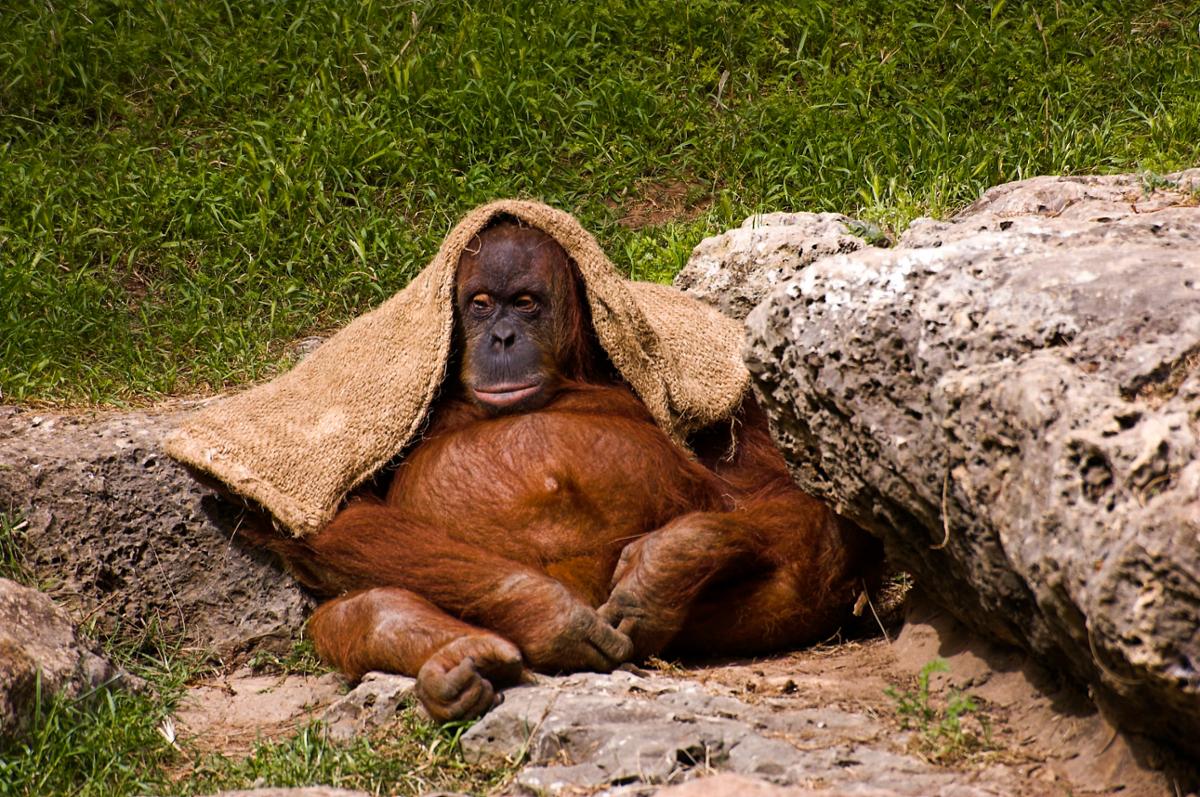What makes an orangutan popular with its fellow apes? Fighting ability? The food it gathers? Or maybe it’s something we humans are familiar with: slang. Like the cool kids in high school, orangutans show off their “it” factor by using, and creating, the hippest lingo in the forest.
That’s according to a study that observed orangutans in Borneo and Sumatra. Collecting thousands of hours of observation over more than a decade, researchers recorded six wild orangutan communities as they went about their lives. Specifically, the researchers listened for the “kiss-squeak” call, the sound these apes make when they fear a nearby predator. They found that different communities not only had different variants of the kiss-squeak, but within each community, further variants of the kiss-squeak rose and fell in popularity.
Humans are no stranger to linguistic variation; after all, what’s “cool” today was “groovy” not so long ago. Orangutans, too, strive to be hip to the latest vocabulary. But what version of the kiss-squeak stays in style depends on an important social factor: population density. When lots of orangutans live close to one another, their kiss-squeak variants have a high turnover rate, as the orangutans eagerly seek out the newest, trendiest slang. Meanwhile, orangutans who live in low-density communities tend to enjoy one version of the kiss-squeak for longer.
The study reminds us that orangutans have much to say: Creating slang, and speaking with consonant- and vowel-like sounds, they begin to tell us of language’s evolution in both man and ape. Pretty cool, huh?










